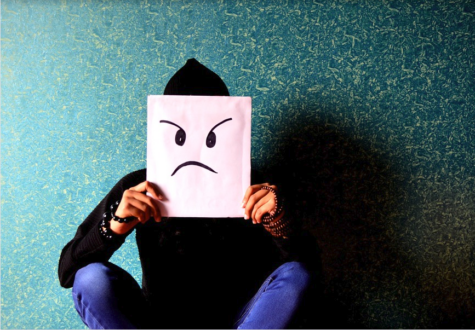This remarkable report on the KQED website unpacks the problem that’s hard to ignore: Today’s young people suffering from depression, anxiety, immaturity — and what might be called the life-blahs.
Actually, that’s a pretty depressing term. Let’s NOT call it the life-blahs.
But it does make sense to look at what cultural forces could be undermining our kids’ confidence and good cheer (besides the past three years of COVID-related sorrow). And that’s what author Holly Korbey does. She makes a compelling case, summed up in her headline, that:
Young adults are struggling with their mental health. Is more childhood independence the answer?
YES!
Korbey quotes me, and Let Grow co-founder Jonathan Haidt, and then a Georgetown Professor actually studying whether kids in America are getting their independence SO LATE in childhood, they miss the window when they would naturally be learning to take some mini risks. A time when Mother Nature expected them to start figuring out, through trial and error, what is safe and what’s dumb. The result? They tend to overestimate the risk of extremely mundane, safe activities — like sitting alone at a cafe, or taking an Uber. Having been told that the world is so scary that they always need someone supervising them, the kids have internalized it.
What is the antidote? You guessed it — treating kids with the free, simple therapy known as “massive doses of independence.” That’s what the psychologist in the article is studying right now: Whether, instead of talk therapy, drugs, or Cognitive Behavioral Therapy, he can actually some ideas from The Let Grow Project (formerly The Free-Range Kids Project) to help kids with a diagnosis of anxiety.
Let Grow is helping to fund this research and we can’t wait to hear the results! In the meantime, there’s no time like the present to start to let go and Let Grow!




3 Comments
The government wants kids to be raised as dependent on parents for everything because then it’s easier to make them think of the government as a parent . It makes them dependent on the government which makes them easier to control. This has been a long time coming. I wonder if our leader have thought about what happens when we need people to be independent and look out for themselves? War, natural disaster, power outage? How will people survive without their help? It’s scary
I agree… 100 percent f acts exactly the plan.
I am not surprised. I’ve been talking and writing about the “generational trauma” of COVID-19, but there is generational trauma in a lack of independence. Young people I’m encountering are often uncomfortable in social situations as well. (And by young I mean 20s.) They are less likely to take initiative in professional situations, and react emotionally to objective criticism.
There is an expectation that they will be praised for doing things, and I have friends who are managers that tell me that these same young people are in their offices crying because their writing was edited, sometimes pretty severely, by their supervisor.
The culture of over-protection and over-validation does a great disservice to young people. Now, no one wants kids to be mistreated in any situation, but at the same time, there is a crying need for self-reliance and that comes from taking a few knocks and getting up again.
I think of my father whose usual phrase was “walk it off.” In other words, learn to live with what life dishes out, and if you deal with it while you’re young, you create a pattern for dealing with things that are negative, hurtful, and learn to differentiate real challenges–even danger–from those that are created out of fantasy.
This is why children’s literature has historically been so gruesome. The vicarious experience of seeing resilient children who somehow manage to escape being turned into gingerbread and in fact triumph over danger is very powerful. If Hansel and Gretel get home in one piece, well, perhaps the kids who encounter the story can, too.
Nonetheless by telling kids everything outside mom and dad’s protective circle is potentially life-threatening, well, hell yeah, you’d be depressed and anxious, too.